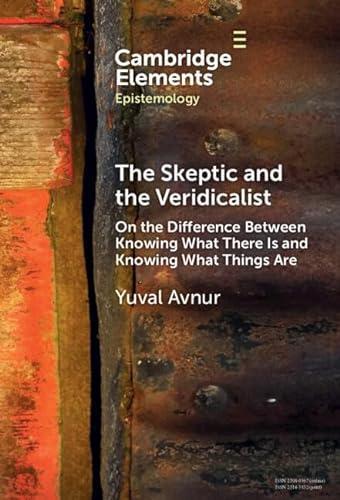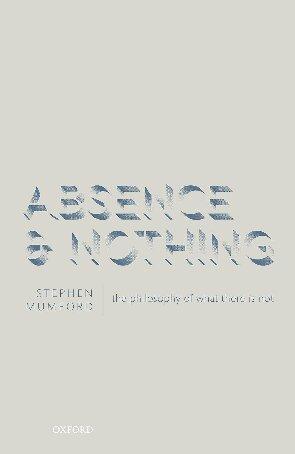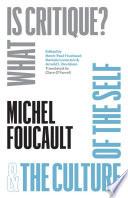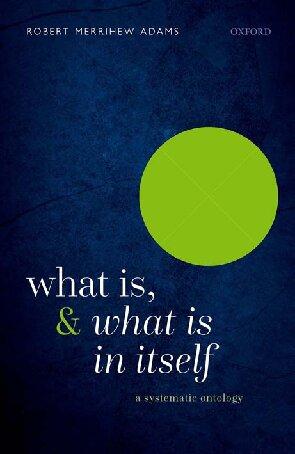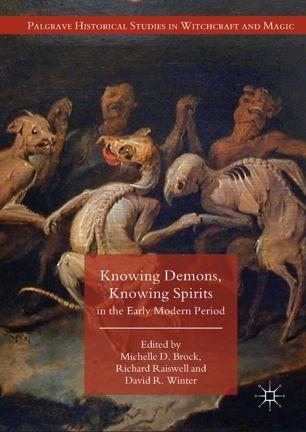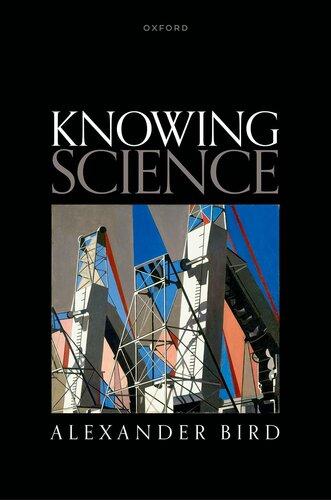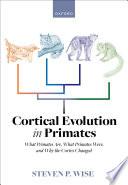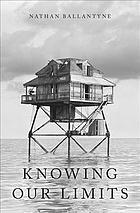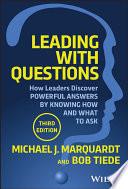The Skeptic and the Veridicalist
On the Difference Between Knowing What There Is and Knowing What Things Are
Yuval Avnur
ElementsinEpistemology
editedby StephenHetherington
UniversityofNewSouthWales,Sydney
THESKEPTIC ANDTHEVERIDICALIST
YuvalAvnur ScrippsCollege
ShaftesburyRoad,CambridgeCB28EA,UnitedKingdom OneLibertyPlaza,20thFloor,NewYork,NY10006,USA 477WilliamstownRoad,PortMelbourne,VIC3207,Australia
314–321,3rdFloor,Plot3,SplendorForum,JasolaDistrictCentre, NewDelhi – 110025,India
103PenangRoad,#05–06/07,VisioncrestCommercial,Singapore238467
CambridgeUniversityPressispartofCambridgeUniversityPress&Assessment, adepartmentoftheUniversityofCambridge.
WesharetheUniversity’smissiontocontributetosocietythroughthepursuitof education,learningandresearchatthehighestinternationallevelsofexcellence.
www.cambridge.org Informationonthistitle: www.cambridge.org/9781009462297
DOI: 10.1017/9781009243308
©YuvalAvnur2023
Thispublicationisincopyright.Subjecttostatutoryexceptionandtotheprovisions ofrelevantcollectivelicensingagreements,noreproductionofanypartmaytake placewithoutthewrittenpermissionofCambridgeUniversityPress&Assessment.
Whencitingthiswork,pleaseincludeareferencetotheDOI10.1017/9781009243308.
Firstpublished2023
AcataloguerecordforthispublicationisavailablefromtheBritishLibrary.
ISBN978-1-009-46229-7Hardback
ISBN978-1-009-24332-2Paperback
ISSN2398-0567(online)
ISSN2514-3832(print)
CambridgeUniversityPress&Assessmenthasnoresponsibilityforthepersistence oraccuracyofURLsforexternalorthird-partyinternetwebsitesreferredtointhis publicationanddoesnotguaranteethatanycontentonsuchwebsitesis,orwill remain,accurateorappropriate.
OntheDifferenceBetweenKnowingWhatThere IsandKnowingWhatThingsAre
ElementsinEpistemology
DOI:10.1017/9781009243308
Firstpublishedonline:December2023
YuvalAvnur ScrippsCollege
Authorforcorrespondence: YuvalAvnur, yuval.avnur@gmail.com
Abstract: ThisElementexploresthenatureandformulationof skepticismabouttheexternalworldbyconsideringanimportantantiskepticalstrategy, “veridicalism.” Accordingtoveridicalism,evenifyou areinaskepticalscenario,yourbeliefsabouttheexistenceofordinary objectsarestilltrue.Forexample,evenifyouareinaglobalsimulation, thingssuchastablesexistassimulatedobjects.Therefore,your ignoranceofwhetheryouareinsuchascenariodoesnotnegateyour knowledgethattherearetables.Thisstrategyfailsbecauseitraisesan equallytroublingskepticismaboutwhatsuchobjectsare:isthetable younowseeasimulatedobject?Thatthisisequallytroublingsuggests thatthecoreskepticalproblemisaboutwhatthecausesofour experiencesare,regardlessofwhethertheycountasordinaryobjects liketables.Thismotivatesareconsiderationofthestandard formulationoftheskepticalargument,andunderminessomeother anti-skepticalstrategiesaswell.
Keywords: epistemology,skepticism,metaphysics,externalworld,ontology
©YuvalAvnur2023
ISBNs:9781009462297(HB),9781009243322(PB),9781009243308(OC) ISSNs:2398-0567(online),2514-3832(print)
Althoughthewholeofthislifeweresaidtobenothingbutadream,andthevisible worldnothingbutaphantasm,Ishouldcallthisdreamorphantasmrealenough,if, usingreasonwell,wewereneverdeceivedbyit.
1Introduction
Skepticismabouttheexternalworldhasbeenformulatedinmanywaysthrough thecenturies.Ithasbeentakentoconcernnotonlyknowledge,butjustified belief,rationaldegreesofconfidence,doubt,andcertainty;ithastakentheform ofatheory,achallenge,aparadox,awayoflife,andaninvitationtodoubt. Thesedays,skepticismisusuallyassociatedwiththequestion,
Canyouknowthatexternal,ordinaryobjectssuchastablesexist?
Thisconcernswhatthereis,orwhatthingsthereare.Sittingatyourtable,you lookdownandseeitssurface,andfeelitspressureunderyourhand.Isthetable reallythere,orisitpartofavastcomputersimulation,orperhapsanideainthe mindofDescartes’ demon?Ifyouconcludethatyoudon’tknowwhethersome suchskepticalscenarioisplayingout,thenyouaresupposedtoconcludethat, therefore,youdon’tknowthatthereisatablethere.Thisisnothingspecialabout tables,sotheconclusiongeneralizes:youdon’tknowwhetheranyexternalobjects exist.Thisstandardformulationignoresthequestionofwhatthingsare,orthe ultimatenatureofthethingswhoseexistenceisinquestion.Thenatureofthings suchastablesisreasonablytakentobeaquestionofmetaphysicsorscience.In fact,skepticismcallsintoquestionwhetherthemetaphysicsandscienceofordinaryobjectsevenhaveaknownsubjectmatter!Thepossibilitythatyouarein asimulationoravictimofDescartes’ demonisan epistemological problemabout whatthereis,andmetaphysicalquestionswhichpresupposetheexistenceof objectssuchastablesdependonasolutiontothatproblem.
Butnoticethatthisstandardformulationofskepticismisnotentirelymetaphysicallyinnocent.Thereisametaphysicalconceptionofexternalworldobjects alreadyatplay,andrequiredfortheskepticalreasoningtogetofftheground,to theeffectthattablesarenotthekindsofthingsthatcouldexistinasimulation,orin themindofademon.Andaccordingly,onemighttrytostopskepticisminits metaphysicaltracksbyrejectingthisconceptionofobjects.Berkeleyfamously proposedthattheexternalworldisultimatelyideal,ormadeupofobjectsthatare themselvesideasaboutwhichtherecanbenoseriousorevencoherentskeptical worry.Thiswouldsolvetheproblemofskepticism,perhaps.Butthissortof idealismseemstooextremetomostofustoday,perhapsevenmoreextremethan skepticismitself.Instead,inthisElementwewillexploreadifferentmetaphysical, antiskepticalstrategy,onethatrejectssomestandardmetaphysicalassumptions abouttheexternalworld,butstopsshortofidealism.
Leibniz(1923)
SettingasideBerkeley’sidealismuntil Section2,considerthisalternative metaphysicalview:Ifthisisallavastsimulation,thentablesstillexist.Inthat case,tablesturnouttobesimulatedorvirtualobjects.Ifthisisallonebig dream,thentablesstillexist.Inthatcase,thisisatable “inthedream,” and tablesturnouttobeideasratherthanmind-independentmatter.Whattablesare dependsonwhichscenarioyou’rein.So,goesthealternativeapproach,there’s noproblem.Lookdownagainatyourtable.Whenyourealizethatyoudon’t knowwhetherornotyouareinasimulationoravictimofDescartes’ demon, youshouldnotconcludefromthisthatthereforeyoudon’tknowwhetherthere isatable.Ifthisisallasimulationorademonscenario,thenthetableturnsout tobeavirtualobjectoranideainthemindofDescartes’ demon. That’sjust whatthingsare inthosescenarios.Ifyoudon’tknowwhetheryouareinsome suchskepticalscenario,thenalthoughyouknowwhatthereis – thereisatable –youdon’tknowwhatthingsare – whatisthistable,acomputationin asimulation,anideainthedemon’smind?Butthatisnoskepticalcatastrophe. Youdon’tknowwhetherthingsareultimatelysimulationsorideasinademon’s mind,butthisisnodifferentfromperfectlyacceptablemetaphysicalhumility abouttheultimatenatureofthings.Weshouldalreadyacceptthatthebest metaphysicsorsciencewillnotnecessarilytelluseverythingaboutwhatthings are,andthat’salltheskepticalpossibilitiesshow.
Thisalternativewayofthinkingswapsskepticalignoranceofwhatthereis forskepticalignoranceaboutwhatthingsare.ItisatleastasoldasLeibniz,but followingitsmostrecentproponent, Chalmers(2018),Icallit veridicalism. The keypointofthisElementisthatveridicalistskepticismaboutwhatthingsareis justasepistemicallydisastrousasstandardskepticismaboutwhatthereis.It isn’tmeremetaphysicalhumility.Aswewillsee,veridicalismmightaddress specific formulations ofskepticism,butitdoesnotsolvetheproblemposedby theskepticalargument.Inotherwords,themetaphysicsofordinaryobjects affectsthe formulation,butnotthe epistemicsignificance,oftheskeptical conclusion.Andthiswillrevealsomethingimportantabouttheproblemof skepticism.Asatisfactorysolutiontotheskepticalproblemrequiresdealing withthepartoftheformulationthat doesn’t dependonone’smetaphysical outlook.Ittakesgettingclearaboutwhatpartoftheskepticalproblem does dependonourmetaphysicstoseethis.
Anentirelyreasonablereactionatthispointis:Buthowcouldthisbe?The alternative,veridicalistmetaphysicsvindicatestheclaimsthatyouknowthat therearetables,thatyoucanputcupsontables,thattablesaremadeofwood, andsoon.(Youmerelylackknowledgeofwhetherallofthosethingsare ultimatelysimulations,orideas.)Howcouldthisfailtosolvetheproblemof skepticismabouttheexternalworld?Itshowsthatyouknowalot!Considerthat
asmallchild,orourancestorintheancientworldperhaps,knowsalotabout whatthereis.Thisknowledgeissignificanttotheirlives,andtheyknowhowto actinlightofthisknowledge.Andyet,wecanimagine,theyeitherhaveno beliefsaboutwhatthingsarebeyondhowtheyappear(inthecaseofthechild), orelsetheyhaveabunchoffalsebeliefsaboutthis(inthecaseofourancestor, whoperhapsthoughtthatallthingswereultimatelymadeofwater,or fire). Whateveritisthatoneworriesaboutwhenoneworriesabouttheskeptical problem – thatweknownothingabouttheworld – surelytheseworriesdon’t applytothecasesweareimagining,asdescribed!Yet, all thesepeoplelack,it seems,isknowledgeaboutwhatthingsare.So,howcouldveridicalism,which positsthatweareroughlyinthesameposition,sinceweknowwhatthereisbut notwhatthingsare,possiblyfailtosatisfyus?Itshowsthatweknowatleastas muchasthechildortheancestor,andtheirsituationdoesnotseemworthyof philosophicalpanic.
ThebulkoftheargumentsinthisElementaimtoshowthatthisattitude, thoughinitiallyappealing,ismistaken.Thechild’sandtheancestor ’signorance aboutwhatthingsareisnotthesameasskepticalignoranceaboutwhatthings are.Aswewillsee,theformerisamatterofimmaturity(whetherofthe individualorofthescienceoftheirtime).Thelatterisamatterofnecessary, completehopelessness.And,aswewillsee,itisequivalentinimportantwaysto ignoranceaboutwhatthereis.Itistruethatnot all kindsofignoranceabout whatthingsareconstitutesanepistemicdisaster.Butaparticular,skepticalsort ofignoranceaboutwhatthingsareisdifferent.Andso,onecanknowalotabout whatthereiswhileknowingverylittleabouttheexternalworld.
Whetherskepticalhypothesesraisedoubtsaboutwhatthereisorwhatthings areis,asveridicalismhelpfullyshows,amatterofmetaphysics.Butifthistable couldbeanythingfromasimulationtoademonicidea,thenthe mere conclusion thatyouknowthatthereisatableisstillcompatiblewithalmosttotalignorance abouttheexternalworld.AsIwillsuggest,thisalsoservestoclarifywhat askepticalscenariois,anditsrelationtoothermetaphysicalhypothesesabout theworld.Skepticismisn’t really onlyaboutknowledgeofwhatthereis,rather itisstandardlyformulatedthatwaybecauseofastandardmetaphysicalpicture.
Hereisanoverviewofwhatistocome.Intherestofthisseciton,after Iintroducethestandard,contemporaryskepticalargument,Idescribeandset asidesomemorefamiliar,nonveridicalistantiskepticalstrategies.
In Section2,Iintroducetheveridicaliststrategyandsomeofthedifferent waysithasbeenpursued.Thisstrategyavoidsskepticismaboutwhatthereis onlybyacceptingskepticismaboutwhatthingsare.Ithendistinguishveridicalismfromsomeother,externalistandidealisttheories,anddescribeskepticism aboutwhatthingsareandhowveridicalismiscommittedtoit.
Sections3 and 4 arewheremostoftheaction(andnovelargumentation)occurs.
Section3 presentsargumentsforthinkingthatskepticismaboutwhatthings areleavesuswithaslittleknowledgeabouttheworldasskepticismaboutwhat thereis.Oneimportantconsequenceofthisisthattheveridicalistantiskeptical strategyfails – atleast, if youwereeverworriedaboutstandardskepticism aboutwhatthereis,thenyourworryshouldnotbeassuagedbyveridicalist skepticismaboutwhatthingsare.
In Section4 Iconsidersomeobjectionstomyarguments:veridicalismatleast grantsusknowledgethattheworldweseearoundusisreality;skepticismabout whatthingsareisnotaradicalskepticismatall,butrathermerescientificor metaphysicalhumilityabouttheultimatenatureofthings;itdoesn’tmatterwhat thingsultimatelyarepragmaticallyorforothervalues;theproblemofskepticism isonlyabouttheexistenceofthings,andotherconcernsaboutthenatureofthings areachangeoftopic.Inreplytothislastobjection,Idiscusssomeofthehistoryof skepticism,fromSextustoHumeandMoore,toshowthattheexclusivefocuson the existence ofordinaryobjectsisarelativelyrecentphenomenon,andthat skepticismaboutwhatthingsarehasoftenbeentakentobeaconcern.
Finally,in Section5 Idescribesomemoregenerallessonsthatcanbelearned fromthewayinwhichveridicalismfailstosolvetheskepticalproblem.Onecan knowwhatthereiswithoutknowingmuchabouttheworld.Someotherantiskepticalstrategiesbesidesveridicalismfailforthisreason,andfurthermorethe standardargumentisinadequateasanexpressionoftheskepticalproblem. Ialsomakesomeobservationsaboutwhatasuccessfulantiskepticalstrategy wouldhavetolooklike.
1.1AStandardSkepticalArgument
Tobegin,consideronecurrentlystandardformulationofskepticismandthe skepticalargument.Skepticism,asBarry Stroud’s(1984) seminalworkformulatesit,istheview “thatnooneknowsanythingabouttheworld” (p.1).Iftrue, thatwouldbeepistemicallydevastating.Butwhatexactlyisknowledge “about” theworld?Philosophersthesedaysinterpretthistobeamatterofwhatthereis: youdon’tknowthattherearetables.Howisthisskepticalconclusionreached?
Thisstandardskepticalargumentrevolvesaroundskepticalscenarioswhich purporttocastdoubtonvastswathsofourbeliefs.Inhis MeditationsonFirst Philosophy,Descartesappealstosuchscenarios,forexampleoneinwhichyou arebeingdeceivedbyanall-powerfuldemon.Sothisstandardskepticalargument isoftenreferredtoasthe “Cartesian” skepticalargument.InDescartes’ demon scenario,thedemonmakesyouhavetheexperienceyouarecurrentlyhaving,so thatitseemslikethereisanexternalworldfullofordinarythingssuchastables
andpeople.But,infact,therearenosuchthings – atleastaccordingtothe standarddescriptionofthescenario.Letusfocusonsuch global skeptical hypotheses,whichonastandardmetaphysicscallallofourknowledge(or justifiedbeliefs)abouttheexternalworldintodoubt.1 Forexamples,thehypothesesthatyourentirelifehasbeenlikeonelongdream,thatyouareabraininavat beingstimulatedbyacomputerinanotherwiseemptyworld,andthatyouarein thescenariodepictedinthe film TheMatrix sincebirthareallglobalskeptical hypotheses.Let “sk” standforyourfavoritesuchhypothesis:
(1)Idonotknowthat~sk.
(2)IfIdonotknowthat~sk,thenIdonotknowthattherearetables.
(3)Idonotknowthattherearetables(from(1)and(2))
(4)Generalizingfromtables,Idonotknowthatthereareanyordinarythings (hands,tables,sandwiches,etc.).2
(Iwillremindthereaderwhateachof(1) – (4)iseachtimeitisusedinanew section.)Thisisonestandardformulationoftheargument,butafewquali ficationsarehelpfulhere.First,arguablythedreamversionofskraises adifferentsetofissues,whichIaddressin Section2 .Second,onemight reasonablyconstruethe “ standard ” skepticalargumentastheargumentfor (1),leavingtheexistenceofordinaryobjectsasafurther,differentmatter.Set thoseargumentsasidehere,sinceourconcernistherelationbetweenglobal skepticalhypothesesandtheexistenceofordinaryobjects.Third,therehas beensomediscussionintheliteratureaboutso-calledunderdetermination principleswhichgenerate(3)and(4)inanalternativeway.Veridicalismcan beunderstoodtoapplytothoseversionsoftheargumentaswell,butatleast thelatestversions,duetoChalmersandValberg,seemtofocuson(1)and (2),soIwillfollowthem. 3 Ultimately,Iconcludethatidentifyingthe skepticalproblemwith(4)isnotquiteright,sincesomeviewsonwhich
1 Ibrieflyaddressoneveridicalist’s(Chalmers’)viewonnonglobalskepticalscenariosinmy reviewofhisbook, Avnur(2023).
2 Thisformulationcloselyfollows Chalmers’ (2018,1).
3 Onerecentandhelpfuldiscussionoftherelationbetweenunderdeterminationprinciplesandthe sortofclosureprinciplesthataretypicallytakentomotivate(1)–(4)is Pritchard(2016,especially ch.2).Theunderdeterminationprinciplestates,roughly,thatiftwopropositionsare(knowntobe) incompatible,theninordertoknoweitheroneofthemone’sevidencemustfavorthatoneoverthe other.Briefly,theunderdeterminationversionoftheskepticalargumentis:
(1*)Myevidencedoesnotfavorthepropositionthattherearetablesoversk.
(2*)Inordertoknowthattherearetables,myevidencemustfavorthepropositionthatthereis atableoversk.(bytheunderdeterminationprinciple) (3)Idonotknowthattherearetables.(from(1*)and(2*)) So, (4).Generalizingfromtables,Idonotknowthatthereareanyordinarythings.
(4)isfalsestillfailtoavoidthesortofepistemicdisasterthatmakes(4) problematic.Itisnotnecessarilyenoughtoshowthatweknowwhatthings thereare. 4
Whyis(4)suchanepistemicdisaster?Theignorance(4)positsimpliesthat yourcognitivelife,inrelationtotheworld,isajoke:forallyouknow,youare thinkingabouttheworldandyourplaceinitcompletelywrong.Youdon ’t evenknowthattherearetables,andthemostyoucanknowisthatthereare tableishsensoryexperiences,which isanightmarishrelationtohaveto reality.Inotherwords,(4)makesexplicitjusthowlittleyouknowabout theworld.
AlthoughIwillmostlybesettingthisaside,externalworldskepticismisnot allabouttables,it’salsoaboutpeople.AsStroudputitwhencontemplatingthe skepticalconclusion:
Otherpeople,asIunderstandthem,arenotsimplysensoryexperiencesof mine;theytoo,iftheyexist,willthereforeinhabittheunreachableworld beyondmysensoryexperiences,alongwiththetablesandchairsandother thingsaboutwhichIcanknownothing.SoatleastwithrespecttowhatIcan knowIcouldnotconsolemyselfwiththoughtsofalike-mindedcommunity ofperceiversallworkingtogetherandcheerfullymakingdowithwhat acommunalveilofperceptionprovides.(Stroud1984,38)
Youknownothingaboutthings,orpeople,beyondyoursensoryexperiences. Thoughtheexistenceofotherpeopleisacentralissueforthosewhoworry aboutclassicskepticalscenarios,aswewillseeinwhatfollows,thereissome questionwhetherveridicalistsmeantobeaddressingsuchscenariosatall.If theyintendtoaddressonlythosescenariosinwhichotherpeoplestillexist(asin TheMatrix),thentheydon’taddressasignificantpartofwhathasbeen worryingphilosophersabout(1)–(4).Iwillleavethispointaside,though,to seehowveridicalismfaresevenwithrespecttoanarrowersetofskeptical hypotheses,andevensettingtheexistenceofotherpeopleaside.5
Theveridicaliststrategyherewouldpresumablybetorejecttheclaimthatthepropositionthat thereisatableisincompatiblewithsk,andsotomaintainthatonecanknowitwithoutpossessing therequisiteevidencethat favors itoversk.Accordingly,(2*)isnotsupportedbytheunderdeterminationprinciplesafterall,andcanberejected.Otherstrategiesmaygotherouteofrejectingthe principle,orrejecting(1*).Buttheveridicalist,itseems,canaccepttheseandstillholdthat(2*)is false.MuchofwhatIsayaboutveridicalistobjectionsto(1)–(4)willapplytothisversionaswell, andInotethatatleasttworecentproponentsoftheveridicaliststrategy,ValbergandChalmers, explicitlytarget(2)ratherthan(2*).
4 Fortherecord,Stroud,inadifferentessay,seemedtoagree,atleastaboutthepointthat whatthingstherearedoesnotsettlewhatsortofworldwearein.See Stroud(1986 , 263 – 264).
5 See Helton(forthcoming).
Tobesure,somepeople,andevensomephilosophers,don’t find(4)so worryingatall.WhatIwillargueinthe nextsection isconsistentwiththat: if one findsstandardskepticismaboutwhatthereisdisturbing,thenone’sworries shouldnotbeassuagedbyveridicalism.
1.2TopicstoSetAside
SincethefocusinthisElementisthemetaphysicalunderpinningsofthe standardskepticalargument,andsincethereisalargevarietyofantiskeptical strategiesandsomeoverlapbetweenthem,itwillbehelpfultoexplicitlyset asidestrategiesandviewsthat,thoughindependentlyinteresting,candistract fromourtarget.Recallthestandardargument:
(1)Idonotknowthat~sk.
(2)IfIdonotknowthat~sk,thenIdonotknowthattherearetables.
(3)Idonotknowthattherearetables.
(4)Idonotknowthatthereareanyordinarythings.
Philosopherstrytoavoid(3)and(4)byrejecting(1)or(2).Themost directstrategyistoreject(1):showthatyourinformationissuf fi cientto ruleoutsk.Denying(2)isindirectinthesensethatittargetswhatseems tofollowfromourignoranceaboutsk,ratherthanskitself.ThoughIwill befocusingonaparticularkindofindirectapproach,andsettingaside directapproaches,thedirectapproacheswillcomeupagaininacoupleof contexts.
First,therearewell-knownstrategies,discussedinthe nextsection and associatedwithHilaryPutnam’s “semanticexternalism” andGeorge Berkeley’sidealism,thatsuperficiallyresembleveridicalismbutarecrucially differentinvariousrespects.Aswewillseein Section2,Putnam-styleexternalismaimstoshowthatwecanruleoutskapriori,ratherthanshowingthat evenifwedon’tknowwhethersk,wecouldstillknowthattherearetables.We willalsoseethatBerkeley’sidealismisincompatiblewithvariousskeptical hypotheses(andpositsametaphysicsofobjectsthatisincompatiblewith veridicalism),andsoalsorulesthemoutapriori.Sotheseviewsreject(1), ratherthan(2).Wewillmostlysetthemaside.
Second,suchrejectionsof(1)willcomeupagainin Section5.Aswewillsee, theonlywaytosatisfactorilysolvetheskepticalproblemabouttheexternal world,insofarasthisproblemarisesfromconsiderationofskepticalhypotheses suchassk,istopursuethedirectapproachofrejecting(1).Inotherwords,much ofwhatfollowscanultimatelybetakenasanargument for thedirectstrategyas superiortotheindirectone.
So,ourfocusisontheindirectstrategy,whichaccepts(1)butrejects(2).But evenherethereisplentyofvariety,andplentytosetaside.Onefamiliarindirect strategyistodeny(2)for epistemological reasons.Implicitinthejustification for(2)istheideathat,sincetheexistenceoftablesimpliesthefalsityofsk (recallthatskisaglobalskepticalscenario),knowingthattherearetables impliesknowingthatnot-sk.Butifthatisthejustificationfor(2),thenoneway toavoidcommitmentto(2)istoavoidcommitmenttosuchconditionsfor knowledge.Maybeitisn’t always thecasethatknowingsomething,p,and knowingthatitentailssomethingelse,q,putsyouinapositiontodeduceor otherwiseknowq.Theconsiderationsinvolvedinthiskindofstrategy,often called “denyingclosure,” areallepistemological,sincetheyinvolvewhatis requiredtoknowsomething.Thatis,thisstrategydoesnotchallengetheidea thatiftherearetables,thenskisfalse.Itdoesnotchallengetheunderlying metaphysics ofobjects.So,forthemostpart,wewillsetthesestrategiesaside. However,aswithdirectstrategies,theseepistemologicalindirectstrategieswill comeupagainattheend,thoughthistimenotasbeneficiaries.Aswewillsee, muchofthetroubleforveridicalismisalsotroubleforsomeepistemological indirectstrategiesaswell.
2Veridicalism
InthissectionIdescribeafewversionsoftheveridicalistantiskepticalstrategy andexplainitscommitmenttoskepticismaboutwhatthingsare.Theyeach deny(2):
(2)IfIdonotknowthat~sk,thenIdonotknowthattherearetables, onthebasisthattherecanbetablesevenifskistrue,becausewhatappeartobe tablesinanyglobalskepticalscenario are tables.So,accordingly,wedon’tneed toknowwhetherornotweareinaskepticalscenarioinordertoknowthatthere aretables.6 Crucially,veridicalismiscompatiblewith(1):
(1)Idonotknowthat~sk.
Partoftheappealoftheviewisthatitneednotbeartheburdenofexplaining howweknow~sk.
Veridicalismcanseemfar-fetched.Howcouldsomethinginthemindof ademon,orinasimulation,beatable?Tablesarerealthings,wewanttosay, andwhilesimulationsthemselvescanbereal,whattheyaresimulations of are
6 Noticethatthisdoesnotrequirerejectingclosureforknowledge.Foradifferenttakeonthe relationof(2)toskepticalhypotheses,see Roush(2010) and Avnur,Brueckner,andBuford (2011).
not,byvirtueofbeingsimulated,real.Letusnowseehowafewdifferent philosophersmotivateanalternative,veridicalistmetaphysics.
2.1ThreePathstoVeridicalism
Veridicalismhasbeenaroundatleastsince Leibniz(1923) and,inthelast century,Bertrand Russell(1927) andO.K. Bouwsma(1949) 7 More recently,veridicalismhasbeendefendedindifferentwaysby David Chalmers(2005 ; 2012 ,431 – 440; 2018 ; 2022 ),J.J. Valberg(2007) ,and,on oneprominentinterpretation, DonaldDavidson(1986 ).HereIwilldiscuss thelatterthree.
2.1.1Chalmers’ StructuralistVeridicalism
Chalmershasdefendedveridicalisminvariousworksovermanyyears (Chalmers2005; 2012,431–440; 2018;and 2022).Hearrivesatveridicalism throughstructuralismaboutphysicalproperties.8 Roughly,structuralismabout somepropertyistheviewthatthatpropertyisindividuated(ortheterm expressingthepropertydefined)byitscausalrole(orbyitsrelationtoother termsinatheory)(2018, section3).Forinstance,having mass ishavinga,or beingthe,propertythatplaysthemassrole(2018,11).Thisalsoappliestoother physicalpropertieswhichthingssuchastableshave,suchasspatialproperties. Detailsaside,theresultisthatbeingignorantaboutskdoesnotitselfimplythat weareignorantaboutwhethertherearetables.For,evenifskistrue,thereis somethingplayingtherole(s)associatedwithbeingatable,andthatisatable.9
Presumably,onthisview,ifthetableisademonicidea(forexample),thenthe factthatithasthecausalroleofatableamountstothefactthatitcauses,insome senseof “cause” thatwewillgrantthestructuralist,otherdemonicideasto occuraswellastherelevantexperiencesinthemindofthevictim.Oddly,when youknockonthewoodofthetable,onthisview,youareknockingthedemon’s mind,andwhenyoutastethecoffeethatisinthecuponthetable,youaretasting thedemon’smind.AndifyouareintheMatrix,youaretastingacomputerchip inacertainstate!
Whetheroneisinasimulationorademonvictimwillmakesomedifference tothecausalprofileofthetable.Ifthetableisademonicidea,thenademon
7 Bousmaisdiscussedin Chalmers(2018,627–629).
8 Sklar(1985,60–161)and Vogel(1990,661)bothconsider,andreject,asortofstructuralist veridicalismviewaswell,asChalmerspointsout.
9 See Chalmers(2018,24–27)forsomeimportantdetails,includingwhethermassisidentifiedwith thepropertythatactuallyrealizestherequisitecausalrole,orwhetheritisidentifiedasthe propertyofhavingapropertythatplaysthatrole.Thoughthisisanimportantdistinctionfor Chalmers,itwon’tplayanimportantrolehere.
could,ifitwanted,makethetabledisappear.Some(perhapsthosemore comfortablewiththeisticviewsaccordingtowhichGodconstantlysustains allobjects)might findthistobeperfectlycompatiblewithwhattheyusually takethecausalprofileoftablestobe,whileothersmight findthistobe inconsistentwithhowtheyassumetablesbehave.Presumably,though,all havetablesinmind.So,insomerespects,thecausalprofileoftablespermits ofsome flexibility.Perhapsthereissomerangeofdifferentcausalprofilesthat, ifsatisfied,issufficientfortablehood.So,different “kinds” oftableswillhave differenttotalcausalprofiles.Butstructuralistveridicalismholdsthatyour ignoranceaboutwhetherskistruedoesnotimplythatyoudonotknowthat therearetables,becauseyouknowthatsomethingwithinthatrangeexists.You stillknowthattheyhaveacertainmass,thattheyhavefourlegs,thatyoucanput cupsonthem,andsoon;so(2)isfalse.Onthisview,skisametaphysical hypothesisabouttheultimatenatureofthingsliketables,andperhapsalsoabout thespecificcausalprofileofthetable.Ifyouareademonvictim,thereisstill atablehere,butthetableisultimatelyademonicideathatwouldvanishifthe demonwilledit.IfyouareintheMatrixorabraininavat(BIV),thenthetable isultimatelyacomputationalstateandcouldvanishaccordingtotheprogram, orbyaglitch.Andsoonforothersk’s.
Therearemetaphysicalobjectionstostructuralism,independentofits implicationsforskepticism,thatIwillsetaside. 10 WhatIwillargueinwhat followsisthatstructuralism(andotherversionsofveridicalism,andsome otherdenialsof(2)),eveniftrue,wouldnotsuf fi cetosolvetheglobal skepticalproblem.
2.1.2Valberg’sPhenomenologicalVeridicalism
Valberg’s(2007) viewisnotintendedtosolve all relevantskepticalproblems, butonlythestandardsort.Onecannotdohisnuancedphenomenological observationsjusticeinsummaryform.But,roughly,heobservesthattheobjects ofexperiencearearrayedaroundyouinaspatialexpansewithyou(thesubject) atthecenter.Hecallsthisarray,orthatwithinwhichthingsappeartoyou,your “personalhorizon” (Johnston2010,ch.2,followingValberginmostdetails, positsasimilarphenomenon,callingityour “arenaofpresence.”)Accordingto
10 Vogel(2019)presentssome,focusingonwhetherconceptssuchasdistanceandcausationcanbeconstruedstructurally.See Chalmers(2018 ,18 – 19)forreplies.ButVogel agreeswithChalmersthatstructuralism,if true,wouldsolvetheglobalskepticalproblem (pp.3 – 4),soonthispointIdifferfromthemboth.Anothersortofproblemfor structuralistveridicalismmightbedevelopedfrom Korman ’s(2015 ,39)argumentthat ourordinaryobjectconceptsarenotsoundemandingastoapplyto whatever isoutthere inourenvironment.
Valberg,ifthisisadream,thenthetableyouseeinfrontofyouisatable “inthe dream,” andthisisanextrinsic,ratherthanintrinsicfactaboutthetable(2007, 30,85,93).Asheputsit,the “this” in “thisisalladream” referstoyourpersonal horizon,whichinthisscenarioisadream.Youcanknow,intheordinaryway, thatthereisatable,then,withoutknowingwhetherthisisadream;youcan knowwhatthethingappearinginfrontofyouiswithoutknowingwhatthat withinwhichitappearsis. “ WhetherTHIS[yourpresentpersonalhorizon] isadreamdoesnotbear,onewayortheother,onwhether this isacup(say), anexternalobject dreamskepticismistranscendent Itleavesmy knowledgeofthistotality,whateveritis,untouched.Itleavesuntouched, then,preciselytheknowledgethatskepticismabouttheexternalworldcalls intoquestion ” (110 – 111).Onthisview,skepticismis “ bothvindicatedand disarmed ” (113).Whatisleftisa “ transcendent ” skepticismaboutwhether theworldaroundyou,inwhichthingsliketablesappear,isadream.Butthis doesnotbearonwhetheryouknowthatthereisatable,onValberg ’sview. Ultimately,mycriticismofveridicalismiscompatiblewiththislatterclaim abouttranscendentskepticism,butIwillarguethatValberg ’streatmentof themorestandard(whathecalls “ immanent ” )skepticismdoesnotconstitute anadequatesolutiontoit.
Valbergappliesthesamestrategytootherglobalskepticalhypotheses,such astheBIV,butmostofhisremarksfocusondreams.So,anoteaboutdream hypothesesisinorder.Onemightthinkthat,inonesenseof “dream,” dream experiencesare,bydefinition,nonveridical.Valberg,forvariousreasons, rejectsthisview,andholdsthatifyouaredreamingthatthereisatablehere, thereisindeedatable,andthattableisultimatelyideal,ormind-dependent, sinceitisatable “inadream.” So,whenweareconsidering,withValberg,the dreamingscenarioasaveridicalistwouldinterpretit,wemustkeepinmindthat thisisahypothesisaboutthemetaphysicalnatureofthetable:ifyouare dreamingthis,thenthetableexists,andisa “dreamtable,” aniteminthe dream.Butonecouldbeaveridicalistwhodoesn’tacceptthisviewofdreams. Forthisreason,fromhereon,exceptwhendiscussingValbergspecifically, Iavoidthedreamhypothesisaltogetherandsticktodemons,BIVs,andthe Matrix.
2.1.3Davidson’sInterpretationVeridicalism
Davidson’s(2006) antiskepticalviewrestsonaviewofinterpretationrather thanstructuralismaboutpropertiesorpersonalhorizons.AswithChalmers’ structuralism,allthedetailswon’tmatterhere,soaroughsketchwillsuffice. Theobjectsof most ofone’sbeliefsaretobeidentifiedwiththeiractualcauses,
12 Epistemology
andthusmustbeinterpretedtobelargelycorrect(andthesameappliestoone’s assertions)( 2006 ,236).So,tosaythatyourbeliefthattherearetablesis falseistomisunderstandyourbelief.However,thisappliesonlytoone ’s simplestbeliefs – thesimplestcasesget “ specialweight ” inthisinterpretation( 2006 ,237) – sothatnonsimple,andmoretheoreticalbeliefsaboutthe innernatureoftablesarenotimmunetoerrorduetointerpretationconsiderations.And,atleastononeplausiblereadingofDavidson,yourbeliefthat youarenotaBIV(assumingyouhavesuchabelief)isnotoneofthose simplerbeliefsthatareimmunetoerror.Thus,thisviewisatleastcompatiblewith(1),sinceitdoesnotguaranteethatthetruth-conditionsofthe beliefthat~skaremet.Andyet,yourbeliefthattherearetablesmustbe,on thisview,trueonanycorrectinterpretation,so(2)isfalse. 11 Davidsonwas averidicalist 12 onthisstandardinterpretationofhisview. 13
AswithChalmers’ structuralism,therehavebeensomeobjectionsto Davidson’sview.Forexample, Craig(1990,213), McDowell(1994,17),and Brueckner(2010,181)havearguedthatDavidson’sveridicalismswapsignoranceaboutwhetherthebeliefthatthereisatableistrueforignoranceabout whatthebeliefthatthereisatableisabout.Isitabeliefaboutcomputerstates, demonicideas,orthesortofmind-independentphysicalobjectwetypically assumeittobe?Davidson,theobjectiongoes,makesusignorantaboutthe contentsofourbeliefs.Onemightwavethisworryawayifoneaccepts,asmany do, Putnam’s(1975,227)sayingthat “meaningsain’tinthehead.” Some ignoranceaboutthecontentsofourbeliefsmaybethenorm,ratherthansome skepticalcatastrophe.But,moreimportantlyforusinthiscontext,notall versionsofveridicalismdirectlyorobviouslyinvolveignoranceaboutour beliefcontents,sosuchobjectionstoDavidsonwouldnotapplytoother versionsofveridicalism.RecallValberg’sveridicalism,forexample,on whichwhetherthisisadreamtableisanextrinsicfeature,which,itseems, wouldnotaffectthecontentofthebeliefthatthereisatableatall.So,Iwillalso settheseobjectionsaside.
11 Klein(1986)suggeststhatthereisanimportantgapbetweensecuringthe truth ofone’sbelief thatthereisatable,and knowledge thatthereisatable,sothat(2)isnotsoeasilysecured.But, presumably,ordinaryknowledgeattributionsareamongthosesimpler,nonphilosophicalbeliefs thatshouldbecharitablyinterpreted.Atanyrate,Iwon’tpursuethis,orother,objectionsto Davidson’sappealtocharityhere.
12 ForinterpretationsofDavidsonasaveridicalist – asaccepting(1)(oratleastnotdenying(1)) andrejecting(2) – see Brueckner(2010,180), Button(2013,142), Craig(1990), Klein(1986), and McDowell(1994,17fn14).
13 Thoughhedoesn’taddressValberg,ChalmersrejectsDavidson’sveridicalism,aswellas Bowsma’s(1949)ordinarylanguageappealto “illusion,” whichheconsiderstobeaversion ofveridicalism.
2.1.4AGeneralDefinitionofVeridicalism
Here,then,isveridicalismasIwillconsiderit.Ithastwoparts:
First:(2)isfalsebecausethereare(knowable)thingssuchastablesevenifsk istrue,andevenif(1)istrue;therefore,theargumentfrom(1)&(2)to(3)(I donotknowthattherearetables)&(4)(Idonotknowthatthereareany ordinarythings)isunsound.Second:(1)showsmerelythatwedonotknow something about theordinarythings(liketables)aroundus,forexample whethertheyaresimulations.
Accordingtoveridicalism,globalskepticalhypothesesconcerntheultimate natureofordinarythings,ratherthantheexistenceofordinarythings.Soour ignoranceaboutwhethersk,asin(1),amountstoignoranceabouttheultimate natureofordinarythings. Section3 considershowproblematicthisignorance is.But first,itwillbehelpfultodistinguishveridicalismfromasimilar-seeming strategieswhichraiseentirelydifferentsetsofissues,inordertoavoidsome commondistractions.
2.2DistinctionfromIdealismandExternalism
Adistinctivefeatureofveridicalismisitsacceptanceoftermswithwhichto formulateskasanopenpossibility.Forexample,thetableismind-independent iftheworldisasyouusuallyassumeittobe,butmind-dependentifyouare avictimofthedemon.So,themeaningof “mind-independent” isneutralwith respecttowhichscenarioyouarein. Chalmers(2005,12,18),callssuchterms “semanticallyneutral” (hecallsthem “non-twin-earthable” termsin[2018])and theyinclude “computational,”“envatted,”“action,” and “stimulated.” With neutralterms,notonlycanwearticulateskepticalworriesaboutspecific scenarios,butalsodistinguish,say,BIVfromMatrixanddemonscenarios (2005,section8).Sinceallversionsofveridicalismarecompatiblewith(1), andcountenanceskasanopen,conceptualpossibility,theyallacceptthatthere aresomesemanticallyneutraltermswithwhichtospecifysomeofsk’sdetails, andwhatexactlywemightbegettingwrongaboutthenatureofordinary objects.14
14 FormoreonwhyChalmersthinkswecanspecifythesedetailsaboutsk,whilesomeofourother terms,suchasplacenameslike “Tucson” arenotneutral,seehis(2005,section9,note1)and (2018,pp.2–4)Valbergalsothinkswepossessneutralconceptsenoughtospecifyanddistinguish differentsk’s.Forexample,incontrasttothedreamingscenario: “the[BIV]hypothesis(properly understood)is first,thatthereisatranscendentworld,aworldoutside[thispersonal horizon];second,thatthereisinthetranscendentworldabrainmaintainedandstimulatedin avat;andthird,thatthetranscendentbrain-in-a-vatsetupisresponsiblefortherebeingsuchathing as[thishorizon],withtheworld(including[me]and[this]brain)internaltoit” (p.118,fn12).So, clearly ‘vat,’‘stimulated’,and ‘transcendent’ canbeusedneutrally.Healsodoesnotthinkthatthe
Analternativeviewrejectsallneutraltermswithwhichtoformulatesk.If therearenoneutralterms,theninanyworld – evenonecreatedbyDescartes’ demon – everythingcountsasphysicalandmind-independent,andwecannot expresswhatwearegettingwrongaboutobjectsinademonscenario.Such astrategymayappearsimilarto,orjustamoreextremeversionof,veridicalism, butitrejects(1)insteadof(2) – arguably,itmustaccept(2),since(2)wouldthen haveafalseantecedent.Itrejects(1)because,onthisview,itisapriorithatthe tableismind-independent,notanidea,notacomputation,andsoon,soitis apriorithatskisfalse.
Onesuchstrategy,whichrejects(1),is Putnam ’s(1981 ,14)content externalism,onwhichconceptssuchas brain , vat, andeven causation ,are notsemanticallyneutral( Putnam,1994 ,207).Rather,whattheyexpressis determined,roughly,bywhatyouareactuallyincontactwith – recallthat,in contrast,onDavidson ’sviewthisistrueonlyofone ’ssimplestbeliefs,notall ofthem.Putnamarguedthat,therefore,whateverscenarioyouarein,youare notaBIV,andtherebyrejected(1). Putnam(1994 ,287)andotherswho followhisantiskepticalstrategy(forexampleTim Button(2013 ,117 – 48) andA.W. Moore(1996 ,224 – 230;2011,51 – 52)alsoholdthatyoupossessno conceptswithwhichtodescribewhatitisaboutthetablethatyouare ignorantofdueto(1).Yourskepticalignoranceaboutthetableis ineffable, becauseyoulacktheconceptualresourcestospecifyit. 15 Soifyouare somehowdeceived,oraremisconceivingtheworld,youcannotsayhow.It seemstofollowthatnorealskepticalproblemaboutthetableduetosk remains. 16
OneproblemwiththePutnamianapproachisthatitseemstodonothing aboutskepticalscenariosinwhichyouwererecentlyenvatted.Thisshortcomingithasincommonwithveridicalism,whichappliesonlytoglobalskeptical scenarios – thecaseofrecentenvattmentandemergingfromthevatwillcome upagainlater(Section4.1).ThereisplentyofliteraturecriticizingPutnam,and othersuchapriorirejectionsof(1),andIdonothavemuchtoaddtothathere.17 Instead,Igrant,followingveridicalism,thatwehaveneutralconceptswith whichtoexpressskandourignoranceabouttablesduetosk,andthatwecan dreamingandBIVscenariosare “pseudo-hypotheses,” asthePutnamianapproach,describedlater inthissection,suggests(121).
15 NotethatButton’sviewonwhetherwepossesstherequisiteconceptsismorecomplexthan Ihavesketchedhere;seechapter19ofhisbook,onthe “cosmopolitan” view,andthebook’s Coda.
16 Skismerelya “bareformal” possibility,as Button(2013,131–132)putsit.Seealso Button (2013,147,48)on “metaphysical” skepticism,whichholds “nothingmorethananebuloussense thattheworldismysterious.” Incontrast,veridicalistsholdthattherearespecifiableand meaningfulaspectsofthingsthatwefailtoknowaboutthetable,dueto(1).
17 See Nagel(1986,73), Wright(1992,93),and Sundell(2016,248).
articulatethebasicdetailsaboutskinitsvariousversions.Aswewillsee,my argumentultimatelycanbeusedtosupportsuchPutnamianapproaches,since oneupshotisthatonlyviewsthatreject(1)cansolvetheproblemthatthe standardargumentposes.
Adifferent,olderviewthatmightalsobeconfusedwithveridicalismis Berkeley’sidealism.AccordingtoBerkeley,thingssuchastablesexist,but theyareideal – ultimately,ideasintheperceivers’ minds(includingGod’s). Thus,theirultimatenatureisdiscoverable:suchobjectsareallmind-dependent. Thisdiffersfromveridicalisminanumberofways.Tobeginwith,veridicalism doesnotreject(1),anditiscommittedtotheviewthatwedo not knowthe ultimatenatureofthings.Theultimatenatureofthingsdependsonwhat scenariowearein,andwedon’tknowwhichscenariowearein.Incontrast, Berkeley does reject(1)andrejectstheviewthatwedon’tknowtheultimate natureofthings.Forexample,BerkeleythinkswecanruleouttheBIVscenario, onwhichtables(accordingtoveridicalism)aremind-independent,computersimulatedobjects.Hethinksweknowthatordinarythingsareultimately ideal.18
2.3VeridicalismandWhatThingsAre
InthissectionIclarifytheideathat,accordingtoveridicalism,thoughyou knowthatthereisatable,dueto(1)youdon’tknowwhetherthetableis asimulation,oranidea,andsoon.Thisamountstoignoranceofwhatthetable is,bywhichImeanwhatcategorytoapplytoit.
Therearedifferentaspectsofathing,which,dependingonthecontext,one mighthaveinmindwhenthinkingaboutwhatthatthingis.Forexample,ifyou tellmeIwillinheritsomefurniture,butIdon’tknowwhetheritisatableor chair,thatisonesortofignoranceaboutwhatitis.Ifyoutellmeitisatable,but Idon’tknowwhetheritiswoodenorplastic,thatisanothersortofignorance aboutwhatitis.Ifyoutellmeitisatable,butnotwhetheritisanideainsome otherbeing’simagination,thenthatisyetanothersortofignoranceaboutwhatit is,onethatonlyveridicalismmakespossible,andonethatseemsintuitively muchmoreextreme,oratanyrateunordinary.
Forpresentpurposes,itisnotnecessarytocomeupwithacompleteaccount of “knowingwhat”– thoughsee Dasgupta(2015) foronerecentaccountthatis compatiblewithmyuseof “knowingwhat.”19 Failingtoknowsomethingabout
18 See Chalmers(2022,68–71)foradiscussionofthedifferencesbetweenveridicalismand idealism.
19 Accordingto Dasgupta’s(2015,468)account, “I ‘knowwhat’ somethingisiffIcanidentifyitby itsnature.” Arguably,ifyoudon’tknowwhetherthetable’s “innernature” iscomputational, ideal,etc.,youfailtoknow “itsnature” inthesenseDasguptadevelops,the “essence” ofathing.
atable,oritsnature, dueto(1) constitutesonesortofignoranceaboutwhatthetable is.Soevenifyouknowthatwhateverthereis “here,” whichcausesyourtable experience,countsasatable,youdonotknowwhatkindoftableitis – ademonic table,asimulatedtable,adsoon – accordingto(1).Sincethisignorancederives fromignoranceaboutsk,letuscallitignoranceabout “whatsk” somethingis. Accordingtoveridicalism,then,youdon’tknowwhatsk thetableis,andthatisjust tosaythattheaspectofitthatyoufailtoknowaboutistheaspectthatyouare ignorantaboutdueto(1):whetheritisanidea,asimulation,andsoforth.Ifwe accept(2),wecanexpressignoranceaboutthetabledueto(1)as(3).If,instead,we reject(2)andacceptveridicalism,thenwearestillcommittedtoignoranceabout tables,butthestructureofthisignorancechanges,from(3),toourfailingtoknow whatsk thetableis.Thestructurehaschanged fromwhatthereis(aretheretables?) towhatsk thingsare(aretablessimulations?).
Itisworthemphasizingthecompatibilityofignoranceaboutwhatsk thetableis withsomeotherknowledgeofwhatthetableis,soasnottooverstateveridicalism’scommitments.Forexample,youmightstillknowthatthetableisnotasofa, ismadeofwood,hasmass,andthatyoucanputacuponit,accordingto veridicalism.For,wood,mass,cups,andimpenetrabilityare,onthestructuralist versionofveridicalism,analyzedintermsoftheircausalroles,whichremainthe sameonsk.OnValberg’sversion,wood,mass,cups,andimpenetrabilityareall there inthedream.Whethertheyare inthedream isanextrinsicfeatureofthem. Andsimilarly,beliefsaboutthetable’shavingthesepropertiesmustbeinterpreted tobetrue,onDavidson’sview.Thus,sincethepropertyofbeingmadeofwood, forexample,isinstantiatedherewhetherornotskistrue,thataspectofthetableis notincludedinwhatsk itis.However,itisalsoimportanttonotethatthis knowledgeofwhatthetableisdoesnotextendveryfar.Youstilldon’tknow whetherthingslikemassandwoodaredemonicideas,forexample.Thatisjust moreignoranceofwhatsk things – inthiscasemassandwood – are.Note,too,that sincetables,weareassuming,couldhavedemoniccausalprofiles(asdiscussed earlierinthissection),ignoranceofwhatsk thetableisimpliesignoranceof whether,say,itwouldvanishifDescartes’ demonwilledit.
Forthosewhodon’tlikethistalkof “what” thingsare,similarremarksapplyto the “nature” ofathing.Insofarasitisinthenatureofatablethatitisnotasofa,then accordingtoveridicalismyoucanknowthe natureofthetable.Butthereisanother partofitsnaturethatyoucannotknowduetoyourignoranceaboutsk,or(1):isthe natureofthetablethatitisademonicidea,acomputationalsimulation?20
20 Iavoidtheuseof “essence” becausewhetheritappliesdependsonthespecificversionof veridicalismatissue.Ifatableisanythingthathastable-likecausalroles(whatChalmerscalls “role” structuralism),thenskdoesnotspecifypartoftheessenceofatable,sincethetablecould existregardlessofwhetheritismaterial,ideal,orcomputational.Ifinsteadtablesarewhateverin
Considerthedifferentskepticalclaimsatissue. Skepticismaboutwhatthereis, Icannotknowwhetherthereisatable,becauseImightbeaBIVorademon victim,
isswappedbyveridicalistsfor skepticismabout whatsk thingsare:
IcannotknowwhetherthistableisaBIV-table,ademon-table,andsoon.(In otherwords,Icannotknowwhatsk thetableis.)
Intuitively,itwouldbestrangeto findthe firstconclusionworryingwhilenot findingthesecondconclusionworrying.Tobesure,somepeopledon’t find eitheroneworryingorproblematic.Forsuchpeople,thestandardskeptical argument,(1)–(4),doesnotconstituteaphilosophicalproblem,butperhaps(at most)acuriosityortrivialpuzzle.Forsuchpeople,thereisnouseforthe veridicalist “solution” totheskepticalproblem,becausethereisnoproblem.As Iexplainfurtherlater,myclaimisultimatelyaconditionalone:ifyou find skepticismaboutwhatthereisworrying,thenyoushouldbejustasworriedby skepticiamaboutwhatsk thingsare.Intuitively,theyseemtoexpressthesame basicignoranceabouttheworld.Thesecondconclusionaboutwhatsk thingsare seemslikeamerereformulationof,ratherthananimprovementoverthe first conclusionaboutwhatthereis.Thisisbecausetheyarebothimpliedbythe following basicskepticism:
Icannotknowwhatiscausingmytableexperience,aBIVmachine,ademon, andsoon.
Basicskepticismisimpliedby(1)onitsown,regardlessofwhetherweaccept (2)orveridicalism.Oncewenoticethatveridicalismdoesnotavoidbasic skepticism,itbecomeshardtofeelrelievedbyswappingthestandardskepticismaboutwhatthereisforveridicalistskepticismaboutwhatsk thingsare. Basicskepticismisjustwhatworriedusaboutstandardskepticisminthe first placeifstandardskepticismwaseverworryingatall:youdonotknowaboutthe worldbeyonditssensoryeffectsonyou.Thisis theexternalworld afterall.It wasonlyduetosomemetaphysicalassumptionaboutwhattablescouldor couldn’tbethatweexpressedsuchworriesasworriesaboutwhatthereis,rather thanwhatthingsare.Butthat’sjusthowweexpressedthesame,basicworry abouttheexternalworld.Inthe nextsection, Section3,Ivindicatethisintuition withsomearguments.
theactualsituationinfacthasthetable-likecausalrole(whatChalmerscalls “realize” structuralism),andifinfacttablesareideal,thenitispartoftheessenceoftablesthattheyareideal, becausenonidealthingscan’tbetables.Byfocusingonnatureinsteadofessence,weremain neutralonthesetwoversionsofverdicalism.
Wehaveseensofarthatthestandardskepticalargument(1)–(4)
(1)Idonotknowthat~sk.
(2)IfIdonotknowthat~sk,thenIdonotknowthattherearetables.
(3)Idonotknowthattherearetables.
(4)Idonotknowthatthereareanyordinarythings.
concludeswithskepticismaboutwhatthereis,andtheveridicalistantiskepticalstrategyleadstoskepticismaboutwhatsk thingsare.AndIhavesuggested thatthesetwoskepticalconclusionsareintuitivelyequallyproblematicbecause botharecommittedtobasicskepticism:youdon’tknowwhatiscausingyour experiences,whatis “beyond” yoursubjectivelyaccessiblementalstates,orin theexternalworld.InthissectionIwillsupportthisintuitionwithsome arguments.
Admittedly,itisaslipperymatterwhat “ problematic ” in “ equallyproblematic ” amountsto,orwhatoneshould findworryinginthe firstplace.Sothe firsttaskistogetcleareronthis.(1)– (4)isvalid,anditspremiseslook plausible,atleastat first.Theargumentposesaproblemiftheconclusion, (4),isworryingorunacceptablefromaphilosophicalperspective.AsIhave suggested,(4)isworryingbecauseitimpliesthatourrelationtorealityis ajoke,becauseitimpliesthatwehaveverylittleknowledge about theworld aroundus.Onemightattempttoavoidthis,andtoassuagetheworry,by showingthattheargument(1)– (4)isunsound.Butifsucharefutationof(1)–(4)commitsustosomethingjustasworryingas(4),byalsoimplyingthatour relationtorealityisajoke,orthatwehavejustaslittleknowledgeaboutthe worldas(4)implied,thenthatrefutationfailstosolvetheproblempresented by(1)–(4).ThisiswhatIwillbearguing.Inotherwords,myconclusionhere isa conditional one:
Ifyoufoundthestandardskepticalconclusion(4)aboutwhatthereis worrying,youshouldnotbesignificantlylessworriedbytheveridicalist skepticalconclusionaboutwhatsk thingsare.
Earlier,Isuggestedthatthereisanintuitiveequivalencebetween skepticismaboutwhatthereisandskepticismaboutwhat sk thingsare,so thattheconditionalistrue.Herearesomeconsiderationsthatvindicatethe intuition.
21 “InAvnur,Yuval(forthcoming)VeridicalismandScepticism. PhilosophicalQuarterly. Iraisesomesimilarproblemsforanarrowerclassofveridicaliststrategies,focusingon structuralism.”
3.1NoFurtherPossibilitiesAreRuledOut
Letussaythatapossibilityis “ruledout” byone’sknowledgeifitisincompatible withone’sknowledge.Veridicalismdoesnotpositthatwecanruleoutanymore possibilitiesaboutreality,andabouttables,thanstandardskepticismdoes.Itis naturaltounderstandtheinformationonehasasafunctionofwhichpossibilities onecanruleout,soitseemstofollowthatveridicalismdoesnotimplythatwe haveanymoreinformationabouttheworldthanstandardskepticismdoes.Rather veridicalismreformulatesthatsameamountofinformationthatispositedby standardskepticism.Onewaytoseethisistoconsiderthetablemoreclosely.Set asidescenariosinwhichnothingiscausingyourexperiences,sothattheyare randomlyoccurring.VeridicalistssuchasChalmers,forexample,havenothingto sayaboutsuchscenarioseither.Instead,focusonglobalscenariosinwhich somethingorotheriscausingyourexperiences,asintheclassicskeptical hypotheses.Boththestandardskepticaboutwhatthereis,andtheveridicalist skepticaboutwhatsk thingsare,agreethatweknowthefollowingdisjunction:
Thereiseitherademonictable,oracomputer-table,ora “non-sk”-table andsoon.
Thestandardskepticdoesnotcountknowledgeofthisexistentiallyquantifieddisjunctionasknowledgeoftheexistenceofa thing whoseexistence conditionsaresovastlydisjunctive,becausesheholdsthatonlynon-sktables aretables.Forveridicalists,aslongasyouknowthatthedisjunctionissatisfied intheactualsituation,youknowthatthereisatable.Thisisbecausewhatever satisfiesthedisjunctionintheactualsituation is atable – and,relatedly,nothing elseisatable.22 So,whileyoustilldon’tknowwhichdisjunctissatisfied,as longasyouknowthatoneofthemis,youknowthatthereisatable.The only difference,then,isthattheveridicalistclaimsthatyouknowthatthereisatable; boththeveridicalistandtheskepticthinkthat all youknowisthatsomething satisfiesthedisjunction,andthatyoucannotknowwhichdisjunctistrue.But howcanveridicalismpositmoreknowledgeabouttheworldthanthestandard
22 Iamherepresenting Chalmers’ (2018,650)versionofveridicalism,or “realizerstructuralism,” accordingtowhichwhateveractuallyrealizestherelevantcausalroleisatable.Itisarguable that,onValbergandDavidson’sviews,beingatableistheevenlessspecificpropertyofbeing anything thatsatisfiesthedisjunction.Thatis,forexample,forValberg,atableinthedreamis atable,butsoisatableoutsideofadream.Thereareadvantagestoeitherkindofveridicalism. Briefly,theadvantageofthe firstkindisthatareplicaofanobject(say,insideaholographic model)thatplaysthesamecausalroleastherealobjectwillnotcountasarealobject.Andthat seemsright.Ontheotherhand,onthatview,ifyouhappentobeaBIV,thentablesarecomputer states,andnothingelsecouldbeatable – notademonicideaorevenaregular,non-sktable.It seemsodd,though,tosaythatanonsimulatedthingwiththecausalroleofatableisnotatable, sinceitseemsintuitivelytobeaparadigmcaseofatableasweall(evenwewhoareBIVs) conceiveoftables.
skeptic,ifthereisnopossibilityaboutthetable,nodisjunct,whichcanberuled outaccordingtotheveridicalistbutnottheskeptic?Thedifferenceseemstobe merelyhowwe describe thepossibilitiesthatwecannotruleout.23
Theveridicalistmightrespondbysayingthatonherviewonepossibilitythat canberuledoutis thattherearenotables.Thisisdeniedbytheskepticwho accepts(3)and(4).Butthisisadifferenceabouthowpossibilitiesaredescribed, notwhichpossibilitiescanberuledout.Accordingtotheveridicalist,theclaim thatwecanruleoutthepossibilitythattherearenotablesisjusttheclaimthatwe canruleoutthepossibilitythat nothing playsthecausalroleassociatedwith tables.However,theskepticwhoaccepts(4)can also rulethatout.Something, eitherthedemon,theBIVcomputer,therobotoverlordsintheMatrix,your dreamingbrain,orsomethingelse,playsarolethatweassociatewithtables. (Otherskepticsmightdenythatthereisevenanycausation,buthereweare consideringaskepticwhoaccepts(1)–(4)butacceptsthat something causesher experiences.)Sheknowsthisinjustthesamewaythattheveridicalistdoes:while granting(1)(Idonotknowthat~sk)andnotknowingwhatsk thethingcausingthe tableexperienceis.So, theverysamepossibility canberuledoutbysomeonewho accepts(4).Theonlydifferenceisthattheskepticwhoaccepts(4)doesnotsay thatanyonewhocanrulethisouttherebyknowsthattherearetables,becauseshe doesnotholdthesame,permissiveviewofwhatcountsasatable.Tobeclear,the standardskepticandtheveridicalistagreethatthispossibility,whichwecanrule out,isoneinwhichtherearenotables,becauseplayingthecausalroleassociated withtablesisnecessaryforbeingatable.Theydisagreeonlyaboutwhether whateverisactually playingthatrolecountsasatable,evenifitisansk-entity. So,theydisagreeabouthowtodescribetheremainingpossibilities.Butthereis nopossibilitythatveridicalismsayswecanruleout,butwhichstandardskepticismdoesnot.Therefore,wepossessthesameinformationabouttheworld accordingtoveridicalismaswedoaccordingtostandardskepticism,andthis impliesthatveridicalismfailstosolvetheproblemposedby(1)–(4).Another, relatedwaytoreachthisconclusionisbyappealtoskepticalneologisms,next.
3.2 “ Tabbies” versusTables
Bymerelyinventingsomecleverterms,thestandardskepticcanknowasmuch abouttheworldastheveridicalistclaimstoknow.Recallthatwearesettingaside scenarios(whichveridicalistsalsodonotaddress)inwhich nothing iscausing
23 Notethatthisappliesaswelltoan “underdetermination” skeptic,whoholdsthatyoudonot knowthattherearehandsbecauseyourevidencedoesnotfavorthehypothesisthatthereare handsoverthehypothesisthatyouareinanskscenariobeingstimulatedinwaythatmimics seeinghands.ThiskindofskepticalsoagreeswiththeveridicalistthatthereiseitheraBIVtable, ademonictable,oranon-sktable(andsoon).
yourtableexperienceswithanyregularity.Boththeveridicalistandthestandard skepticclaimthatwehaveknowledgethatsomethingiscausingourtable experiencesandhasacausalprofilesimilarenoughtowhatweusuallythink tableshave.Eventheskepticknowsthat,ifwearedeceivedbythedemon,then ourexperiencesarecausedbythedemon.Theonlydifferenceisthatthe veridicalistclaimsthatwhateverthisiscountsasatable.Buttheskepticcould comeupwithacleverterm, “tabbies,” whichshestipulatestoapplytothething thatactuallycauseshertableexperiences.Shehastherebyturnedknowledgethat somethingcausedhertableexperienceintoknowledgethattherearetabbies.So, sheaccepts(4),andyetnowshealsoknowswhatthingsthereare:tabbies.She knowsasmuchabouttabbiesastheveridicalistclaimstoknowabouttables.
Nowourcleverskeptic
– whoIcallaskepticbecausesheaccepts(1)–(4) – who knowsthattherearetabbies,maynolongerqualifyasaskepticabouttheexternal world,becausesheclaimstoknowwhatthereis,namelytabbies(thoughshestill holdsthatwedon’tknowwhethertherearetables).Hasshetherebyavoidedthe skepticaldisasterimpliedby(4)?Comparewhatthiscleverskeptic,whoaccepts (4),claimstoknowandwhattheveridicalistclaimstoknow.Theybothknowthat somethingcausestheirtableexperiences,buttheveridicalistcallsitatable,while theskepticcallsitatabby.Butknowledgethatthereisatableandknowledgethat thereisatabbyamounttothesameinformationabouttheworld.Metaphysically, thereisnodifferencebetweentabbiesandtheveridicalist’stables:theyexistinall thesamepossible(global)scenarios,andregardlessofwhetherskistrue. Veridicalistsholdthatthecleverskeptichasafalsetheoryoftables,aswe ordinarilythinkofthem,becausetablesaretabbies,eventhoughthisskeptic saysthatskisincompatiblewithtables,butiscompatiblewithtabbies.Butthatis adisagreementaboutwhatcountsasatable;thereisnosubstantialdifference betweentheirclaimstoknowledgeaboutwhatisgoingonaroundthem,given thatthattheybothacceptbasicskepticism.Theinformationtheyclaimtohave abouttheirenvironmentisthesame,expresseddifferently.
Wecannowseewhytheveridicalistantiskepticalstrategyisnotanadequate solutiontotheskepticalproblemposedby(4).Grantingveridicalism,(4)isfalse, andskepticismaboutwhatthereisisavoided.(4)posedaproblembyraising aworryaboutourknowledgeabouttheworld.Butveridicalism’ssolutiontothe problemposedby(4)isadequateonlyiftheknowledgewehaveabouttheworld accordingtoveridicalismissubstantiallybetterthantheknowledgewecanhave abouttheworldaccordingto(4).Butsomeonewhoaccepts(4),bymerely stipulatingnewtermssuchas “‘tabbies,” canclaimtohaveessentiallythesame knowledgeastheveridicalistclaimswehaveabouttheworld,onlyusingdifferent termstoexpressit.So,theknowledgewehaveaccordingtoveridicalismisnot substantiallybetterthantheknowledgewecanhaveaccordingto(4).Itfollows thatveridicalismdoesn’tadequatelysolvetheskepticalproblemposedby(4).
Anotherthingfollowsfromthis:thestandardskepticalargument,(1)–(4),is notanadequateexpressionoftheskepticalproblem,sincerefutingthestandard argumentisinsufficientforsolvingtheproblem.Wewillreturntothisimportant upshotlater.
3.3NoFurtherAdvantagePositedbyVeridicalism
Sofar,Ihavearguedthatveridicalismdoesnotpositmoreinformation(inthe formofpossibilitiesruledout)thanstandardskepticism,andthatstandard skepticspositallthesameknowledgeabouttheworld,butindifferentterms, astheveridicalists.Iclaimedthatthisimpliesthatveridicalismleavesusas badlyoff,withrespecttoourknowledgeoftheexternalworld,asstandard skepticism.Skepticismaboutwhatthereisisnoworsethanskepticismabout whatsk thingsare.Butdoesveridicalismperhapsdosomethingelsethatmakesit aworthwhileresponsetostandardskepticism?
Onemightsuggestthatveridicalismvindicatesourordinarythinkingabout theworld,sinceweordinarilybelievetherearetables,nottabbies.Ifso,thenat leastveridicalismposits ordinary knowledgeabouttheworld,andthismaybe thoughttobeanimprovementoveroursituationaccordingtostandardskepticismaboutwhatthereis.Inevaluatingthisclaim,Isetasideissuesaboutthe individuationofbeliefcontentsthatareraisedhere – onsometheoriesof content,abeliefthatthereisatabbyhasoneandthesamecontentasabelief thatthereisatable,sotheobjectionisfalse.Still,thereareotherproblemswith thissuggestion.
Tobegin,interpretingthissuggestionisabitcomplicatedbecauseitis ambiguousbetweenadissolutionandasolutiontotheskepticalproblem. Considerthedissolution.Onthisinterpretation,ourordinarybeliefthatthere aretablesdoesnotdiscriminatebetweensk-tablesandnon-sk-tables.So,it shouldnotbotherusthatwedon’tknowwhetherthereareanynon-sk-tables. Butthatisall(1)–(4)couldestablish.Onceitisclarifiedthat,in(3)and(4),the skepticmeanstodenyusknowledgeof non-sk objectsintheexternalworld,we shouldnolongerbeworriedordisturbed.Thisisadissolutionoftheskeptical problem:thereisnoproblem,really,becausenothingaboutskepticalconclusionslike(4),orthefactthatwecannotruleoutanyofthedisjunctsdiscussedin Section3.1,shouldworryorconcernus.24
Thereplytothisdissolutionistwofold.First,technically,whatIhavebeen arguingisentirelycompatiblewiththisbecauseIaimtoestablishonly
24 Davidsonarguablyintendedhisveridicalismasadissolutionofthiskind.Hedidnotseehimself as answering theskeptic,somuchasriddingusoftheneedtoanswer(2006,238–241). Nevertheless,onemight,andmanyhave,appealedtoDavidson’sviewasasolutionto skepticism.
aconditionalclaim: if you findstandardskepticism(1)–(4)worrying,thenyou shouldn’ttakesolaceinveridicalism.Thisiscompatible,ofcourse,withthe antecedent’sfalsity.Second,andmoresubstantively,itisimplausiblethatour ordinarythinkingabouttheworldisvindicatedbyveridicalism.Weordinarily assume(oraredisposedtobelieve)variousthingsabouttablesthatarenot vindicatedbyveridicalism:thattheyarenotdemonicideas,orthattheyarenot itemsinavastsimulationbroughtaboutbyrobotoverlords.Thisisclearfrom thefactthatskepticalscenarios initiallyappear tocontradictwhatweassume abouttheworld,andsurelyyouwouldbesurprisedifyousomehowlearned thatyourentirelife,andtheworldthatstimulatesyoursenses,isactually acomputerinterfaceinavideogameplayedbysomebeingoutsidethe universeyouknow. Some ofourordinarybeliefsare vindicated(thereare tables),and some ofourordinarybeliefs(tablesarenot figmentsofsome creature ’simagination)arenot.Thequestionremainswhethersavingonlythe firstkindofbeliefissufficienttoundermineanyworrywemighthaveabout thesecond – moreonthislater.
Tobesure,otherassumptionsabouttables,forexamplethattheyarenot mostlyemptyspace,haveturnedoutfalse,andlearningthishasnotamountedto afull-blownskepticalcrisis.Iaddressthisrebuttal,andthedifferencebetween learningsomethingnewaboutatable’smaterialnatureandourignoranceof whetheritsnatureisasaccordingtosk,later,in Section4
Moreover,itisdifficulttosquaretheprecedingdissolutionwiththeclaim, establishedearlier,thatveridicalismfailstopositanysubstantialknowledgeor informationabouttheworldthat(4)failstoposit.Whethertocallthethings causingourexperiences “tables” ratherthan “tabbies” isaparadigmatically empty question:notaquestionaboutwhichscenarioyouarein,buthowto describethatscenario.25 So,evenifveridicalismsavessomeofourordinary thinkingabouttheworld,itisunclearhowthiscouldmatter.Veridicalismdoes notshowthatweknowanymoreabouttheworld,orabouttables,thanwedo accordingtostandardskepticism.Thisisduetothe way (4)isavoided,namely byaverypermissiveaccountofwhatcouldcountasatable.Howcould theway yourknowledgeisformulatedordescribed makeadifferencetohowworried
25 Thisnotionisoriginallydueto Parfit(1984,235).Heillustratesitin Parfit(2011,435):When abouttocrossthechannel,supposeyouknowthatyouwillfeelseasick,butyouwonderwhether beingseasickcountsasbeinginpain – thisisaquestionabouttheextensionoftheterm “pain,” notaquestionabouthowyoufeel.Here,youknowwhatwillhappen,thoughyoudon’tknow howtodescribeit.Thisisincontrasttoacaseinwhich,abouttoundergosomemedical procedure,youdon’tknowwhetheryouwillbeinpain.Inthechannelcase,therearen’ttwo differentpossibilities:youknowwhichpossibilitywillhold,justnotwhattocallit.AsParfitputs it, “Itmatterswhether,whilereceivingthemedicaltreatment,Ishallbeinpain.Anditmatters whether,whilecrossingtheChannel,Ishallbeseasick.Butitdoesnotmatterwhether,infeeling seasick,Icanbesaidtobeinpain.”
youareaboutyourknowledgeoftheworld?Recallthatveridicalismisstill committedtobasicskepticism,accordingtowhichyoudon’tknowwhatcauses yourexperiences.If that iswhatwasworrying,thenveridicalismcannothelp. Turnnowtotheinterpretationaccordingtowhichveridicalismsolvesthe problemraisedby(4)becauseourordinarybeliefs,ormoreofthemthan accordingto(4)anyway,turnouttobeknowledgeafterall.Onthisview,the numberofordinarybeliefs thataretrueandconstituteknowledgeishigher accordingtoveridicalismthanitisaccordingto(4),andthisisenoughofan epistemicdifferencetoassuagetheproblemraisedby(4).Forexample,you knowthatthereisatablemadeofwood,andacuponthetable,andthatthetable andcupareinaroom,andyouevenknowwhatcitytheroomisin,andsoon. Theseareordinarybeliefsthatconstituteknowledgeaccordingtoveridicalism, butnotaccordingtostandardorevenbasicskepticism(thoughthelatterleaves thisopenratherthandenyingit).Earlier,Iarguedthatthisisnotepistemically significant,sinceitdoesnotshowthatyourinformationorknowledgeaboutthe worldexcludesanypossibilities(itonlychangeshowthosepossibilitiesare described),andthattheverysameitemsofknowledgecanbeknownby askepticwhoaccepts(4)andwhoalsoinventsacleverneologism.Here,the objectionisthatthesuperior quantity of ordinary beliefsthatcountasknowledgeisitselfvaluable,andthisisanadvantagethattheveridicalisthasoverthe standardskeptic.
However,thecomparative “score,” asIwillrefertothematterofhowmany ofourordinarybeliefsconstituteknowledge,is, first,notsostraightforward, and,second,notclearlysignificant.
First,countingbeliefsisnotoriouslyaslipperything,whereonebelief becomesakaleidoscopeofmillions.Forexample,youbelievethatthereis atable,atableinfrontofyou,andalsoatablecloserthantenfeetfromyou, closerthantwelvefeetfromyou,andsoon.Howmanybeliefstocountthereis notobvious.Thismuddiestheveridicalist’sobjection,becausethereisasimilar, indefinitenumberofthingsyou don’t knowconcerningthetable,accordingto veridicalism,sothatthenetadvantagetoveridicalismoverstandardskepticism isdifficulttodiscern.
Forone,youdon’tknowthatthetableismind-independent,thatitisnot madetoappearbyademon,thatmachinesthathaveenslavedhumanitydidn’t causeittoexist,thattheydidn’tcauseittoexistwhilerunninglowonbatteries, whilebeingpoweredbyanevennumberofsolarpanels,andsoon.Butsurely youalsoordinarilybelieve,oraredisposedtobelieve,suchthings.Sure,these don’toftencomeupinordinarylifeandareseldomsaidoutloud,butneither does “thereisatableinfrontofme.” Westillordinarilybelieveallofthese things.Ifthelattercountsasordinarydespite,asWittgensteinfamouslypointed
